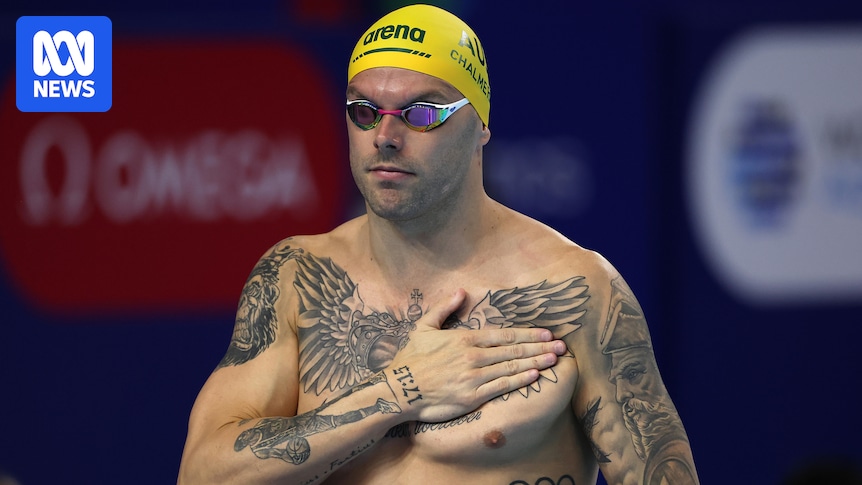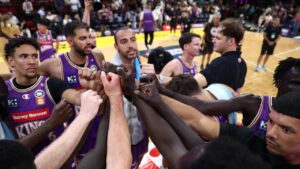
Swimming Australia has formally requested that Meta remove social media posts containing fabricated quotes attributed to prominent swimmers Kyle Chalmers and Mollie O’Callaghan. This request follows a recent incident involving similar false statements linked to O’Callaghan, highlighting ongoing challenges in managing misinformation online.
The controversy erupted when quotes falsely attributed to Chalmers, addressing issues related to LGBT and transgender athletes, surfaced on platforms owned by Meta, including Facebook and Instagram. Although the misleading posts concerning Chalmers have been removed, those involving O’Callaghan remain accessible as of Thursday morning (AEDT).
Background of the Incident
This issue first came to light when quotes falsely attributed to O’Callaghan appeared online on October 12. These quotes suggested that Australia might boycott the Los Angeles Olympics if transgender athlete Lia Thomas were allowed to compete. The posts also falsely claimed that O’Callaghan had the support of the Australian Sports Commission, a statement the Commission has since refuted.
Swimming Australia has been proactive in addressing these inaccuracies. In a recent statement, the organization emphasized that neither Chalmers nor O’Callaghan had ever provided commentary on LGBT or transgender athletes, nor had they been interviewed by the entities mentioned in the posts.
“There are currently fabricated quotes attributed to Dolphin Kyle Chalmers appearing on social media,” a Swimming Australia statement said. “Kyle Chalmers has never been interviewed by Swim Hub or Swim Aquatics and additionally has never provided commentary on LGBT or transgender athletes.”
Meta’s Response and Ongoing Concerns
Meta was initially informed of the fake posts involving Australian swimmers two weeks ago. Despite the removal of posts related to Chalmers, the persistence of O’Callaghan’s false quotes raises questions about the effectiveness of Meta’s content moderation policies.
The Australian Sports Commission has firmly denied any association with the statements attributed to them in the misleading posts. A spokesperson told AAP FactCheck, “The Australian Sports Commission confirms it has never made any such statement.”
The Broader Context of Transgender Athletes in Sports
The controversy surrounding these fabricated quotes taps into a broader, ongoing debate about the participation of transgender athletes in competitive sports. In 2022, Lia Thomas made history as the first openly transgender athlete to win an NCAA Division I national championship, triumphing in the women’s 500-yard freestyle event. However, her victory sparked significant debate and led to World Aquatics banning transgender swimmers from women’s races.
Thomas’s subsequent legal challenge against the ban was unsuccessful, culminating in 2024. The issue gained further attention in February when former U.S. President Donald Trump signed an executive order banning transgender women from competing in women’s sports. This was followed by an investigation by the Department of Education’s Office of Civil Rights into the University of Pennsylvania for alleged Title IX violations, specifically naming Thomas.
In response to the controversy, the University of Pennsylvania added a footnote to Thomas’s records and issued an apology to former students.
Implications and Future Steps
The incident underscores the challenges faced by organizations like Swimming Australia in combating misinformation and protecting the reputations of their athletes. It also highlights the need for social media platforms to enhance their mechanisms for identifying and removing false content.
As the debate over the inclusion of transgender athletes in sports continues, it remains to be seen how governing bodies, athletes, and social media platforms will navigate these complex issues. For now, Swimming Australia and the affected athletes await further action from Meta regarding the remaining false posts.
Meanwhile, the broader sports community continues to grapple with the implications of these debates, seeking a balance between inclusivity and fairness in competitive sports.







